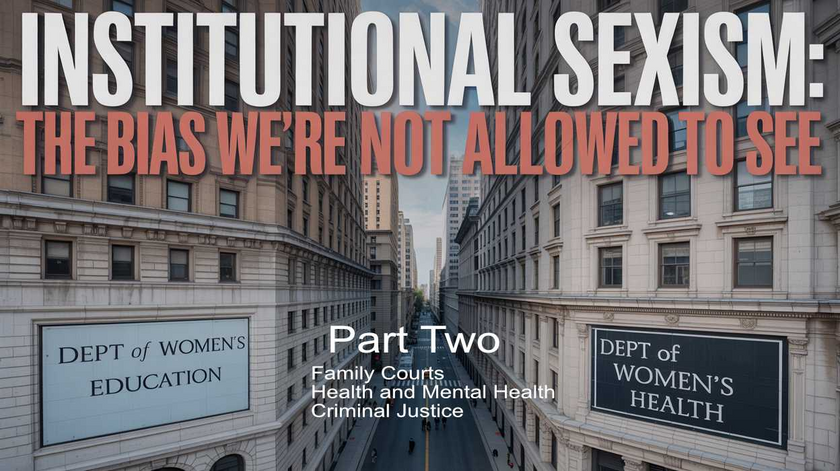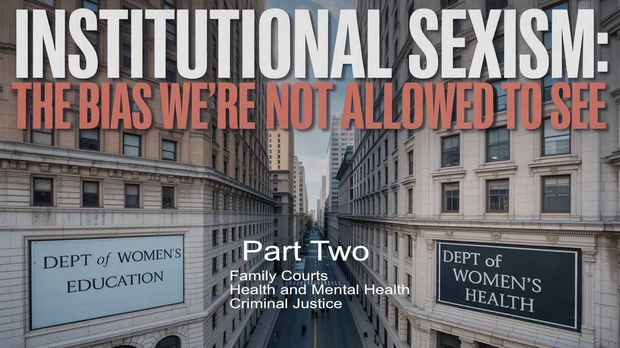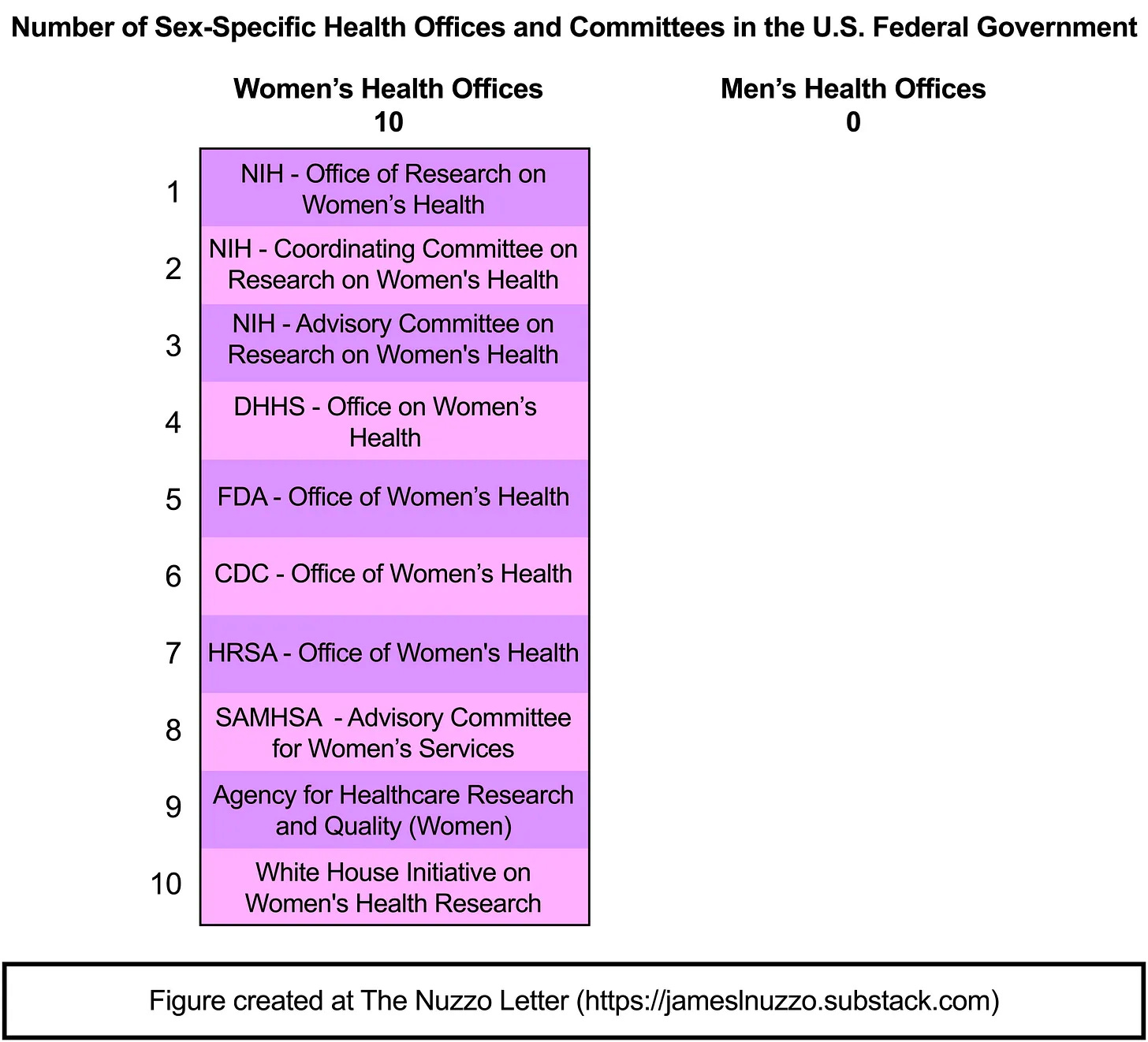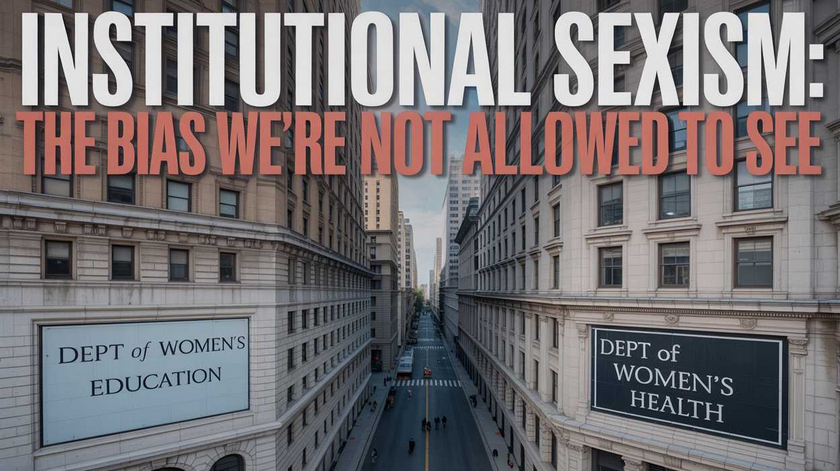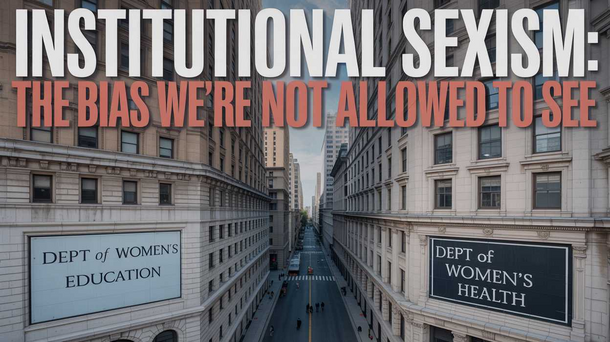Stereotype Threat for Me but Not for Thee: The Feminist Double Standard on Gender Stereotyping
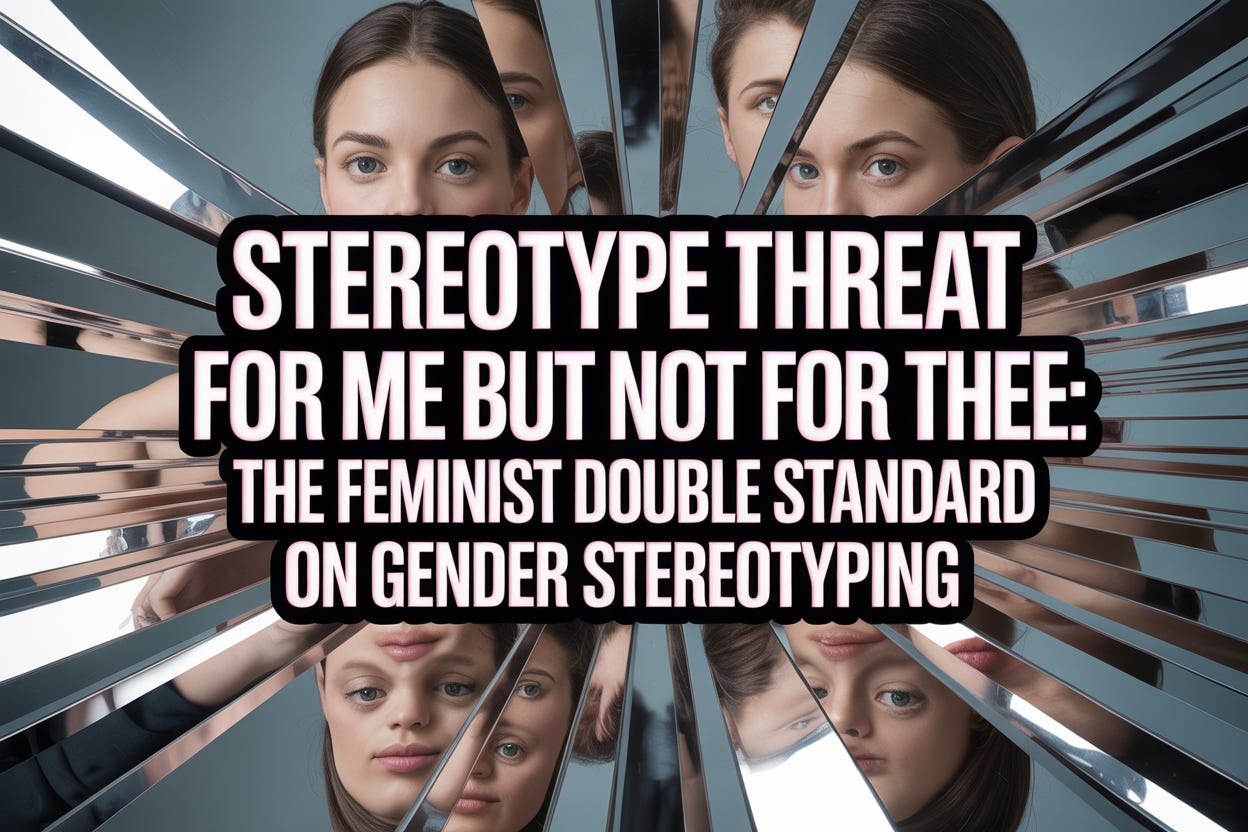
Modern feminist thought has deeply influenced how society perceives and responds to gender-based stereotypes. Feminists have rigorously documented how stereotype threat impacts women and girls—how being reminded of negative gender-based assumptions can lower their performance, limit their confidence, and reduce their opportunities. As a result, enormous institutional energy has been devoted to minimizing stereotype threat for females across education, employment, and media.
Yet in a jarring contradiction, the same feminist voices that crusade against the stereotyping of girls often perpetuate, ignore, or excuse deeply harmful stereotypes about boys and men. From classrooms to courtrooms, from media headlines to college campuses, males are frequently cast in the most unflattering terms imaginable: violent, toxic, emotionally stunted, hypersexual, power-hungry. This glaring double standard is rarely acknowledged—and when it is, it's often waved away as justified.
The result is a cultural imbalance where girls are protected from stereotypes, while boys are buried under them. Let’s examine how this disparity is constructed, maintained, and what it costs all of us.
Stereotype Threat and the Feminist Crusade to Protect Girls
Feminists have long argued—and rightly so—that stereotypes about girls can shape outcomes. One of the most cited examples comes from the realm of STEM education. Studies have shown that girls perform worse on math tests when reminded of the stereotype that "girls aren’t good at math." This phenomenon, known as stereotype threat, was popularized by social psychologists Claude Steele and Joshua Aronson. Feminists embraced the concept and used it to campaign for reforms in teaching, testing, curriculum design, and media messaging.
Other domains soon followed. Feminists argued that girls were reluctant to lead because of the “bossy” label, or that societal beauty standards hurt girls’ self-esteem and academic performance. They noted that girls were silenced by fear of being called “sluts,” or that women in professional settings were discredited as “too emotional.” Each of these concerns was framed not just as an individual struggle, but as a systemic injustice—something society must urgently address.
And society listened. School systems restructured grading rubrics. Teachers were retrained. Billions were poured into programs to boost girls' confidence in science, leadership, and athletics. The public and private sectors launched endless initiatives to remove barriers caused by female stereotype threat.
In short, feminist activism produced a world where girls’ psychological safety was treated as sacred.
The Stereotyping of Boys: An Avalanche of Contempt
While girls were being lifted out of the trap of stereotype threat, boys were being pushed further in.
Instead of confronting negative assumptions about boys and men, feminist rhetoric often amplifies them. From slogans like “toxic masculinity” to academic theories of male privilege and patriarchy, boys and men are persistently painted with a broad and damning brush.
Here are just a few of the common stereotypes promoted or tolerated in feminist narratives:
“Toxic masculinity” — Suggests that traditional male traits like stoicism, competitiveness, or strength are inherently dangerous or pathological.
“All men are rapists” — A paraphrase of radical feminist assertions such as those made by Andrea Dworkin and echoed in various feminist circles, promoting the idea that male sexuality is fundamentally predatory.
“Men are pigs” — A socially tolerated insult that would be unthinkable if genders were reversed.
“The future is female” — A slogan implying men are obsolete or that society would be better off without them.
“Teach boys not to rape” — A blanket accusation that implies boys are budding criminals in need of reprogramming.
The sheer scale of anti-male generalizations today is staggering. Feminists have created entire frameworks—like the Duluth Model of domestic violence—that treat men as default aggressors and women as default victims. In higher education, young men are often presumed guilty under “believe all women” policies that strip them of due process. In mainstream media, the “bumbling dad,” the “man-child,” or the “creepy predator” are staple characters.
Meanwhile, no serious feminist movement campaigns to shield boys from these psychological burdens. There is no widespread effort to protect boys from stereotype threat. No national initiatives to challenge the myth that “boys don’t cry” or that “boys are naturally violent.” Instead, when boys struggle or fail, they’re often told to check their privilege or try harder not to be a threat.
A Culture That Justifies Male Stereotyping
One of the most troubling aspects of this double standard is the moral justification feminists use for maintaining it. The typical logic goes something like this:
Men have power.
Therefore, they can’t be victims.
Therefore, criticizing or generalizing about them is not harmful.
In fact, it’s necessary for justice.
This thinking allows feminists to cast boys and men in extremely negative terms while insisting that no real harm is done. But this argument collapses under scrutiny.
First, boys are not “the patriarchy.” They’re children. They don’t hold systemic power. Yet from an early age, they are fed messages—through media, school, and sometimes family—that their natural traits are problematic. If stereotype threat is damaging to girls, how much more damaging is it to tell boys they are inherently dangerous?
Second, even adult men are not immune to the effects of persistent shaming and stereotyping. Research on stereotype threat applies to any group facing negative assumptions. If women avoid STEM because they feel they don’t belong, what happens to boys who are told they’re emotionally broken, likely to abuse, or irrelevant?
The feminist model claims to fight for equality. But equality means fighting harmful stereotypes wherever they exist—not just when they affect women.
The Human Cost of Ignoring Stereotype Threat in Boys
Boys today are falling behind in almost every major metric. They lag in literacy, high school graduation rates, and college enrollment. They are more likely to be suspended, medicated, or diagnosed with behavioral problems. They are less likely to be encouraged to express vulnerability, receive mental health care, or have their pain taken seriously.
Feminist rhetoric plays a significant role in this decline. By flooding the culture with negative images of maleness, it reinforces the very stereotype threat that it claims to abhor—only this time, it targets boys.
Consider a boy growing up in today’s world. He hears that his male role models are “toxic.” He learns that his normal competitive urges are suspect. He sees men in the media portrayed as fools, predators, or bullies. He enters a classroom where empathy is reserved for girls and suspicion is reserved for boys. If he acts out, he’s a threat. If he withdraws, he’s invisible. Either way, he’s lost.
What message does this send to boys? What expectations do we set? What futures do we foreclose?
The cost isn’t just male suffering—it’s societal dysfunction. When half the population is taught to distrust itself, we all lose. Relationships become harder. Families fracture. Collaboration becomes suspicion. We create not equality but enmity.
Toward True Equality: Challenging All Stereotypes
If we are serious about ending stereotype threat, we must abandon the feminist double standard that protects girls while demonizing boys. Equality demands consistency.
We must challenge the notion that “masculinity” is toxic. We must stop normalizing phrases like “men are trash” or “all men are predators.” We must stop teaching boys that their natural impulses are shameful. And we must recognize that stereotype threat applies just as much—if not more—to boys who grow up under a cultural cloud of suspicion and contempt.
Imagine if we treated boys with the same empathy and concern we extend to girls. Imagine if we taught them that their emotions matter, that their strengths are assets, and that their masculinity is something to be honored, not erased.
True progress will not come from selectively dismantling stereotypes. It will come from rejecting all dehumanizing generalizations—whether they target girls or boys, women or men.
Only then will we live in a culture that affirms the dignity and potential of every human being.



